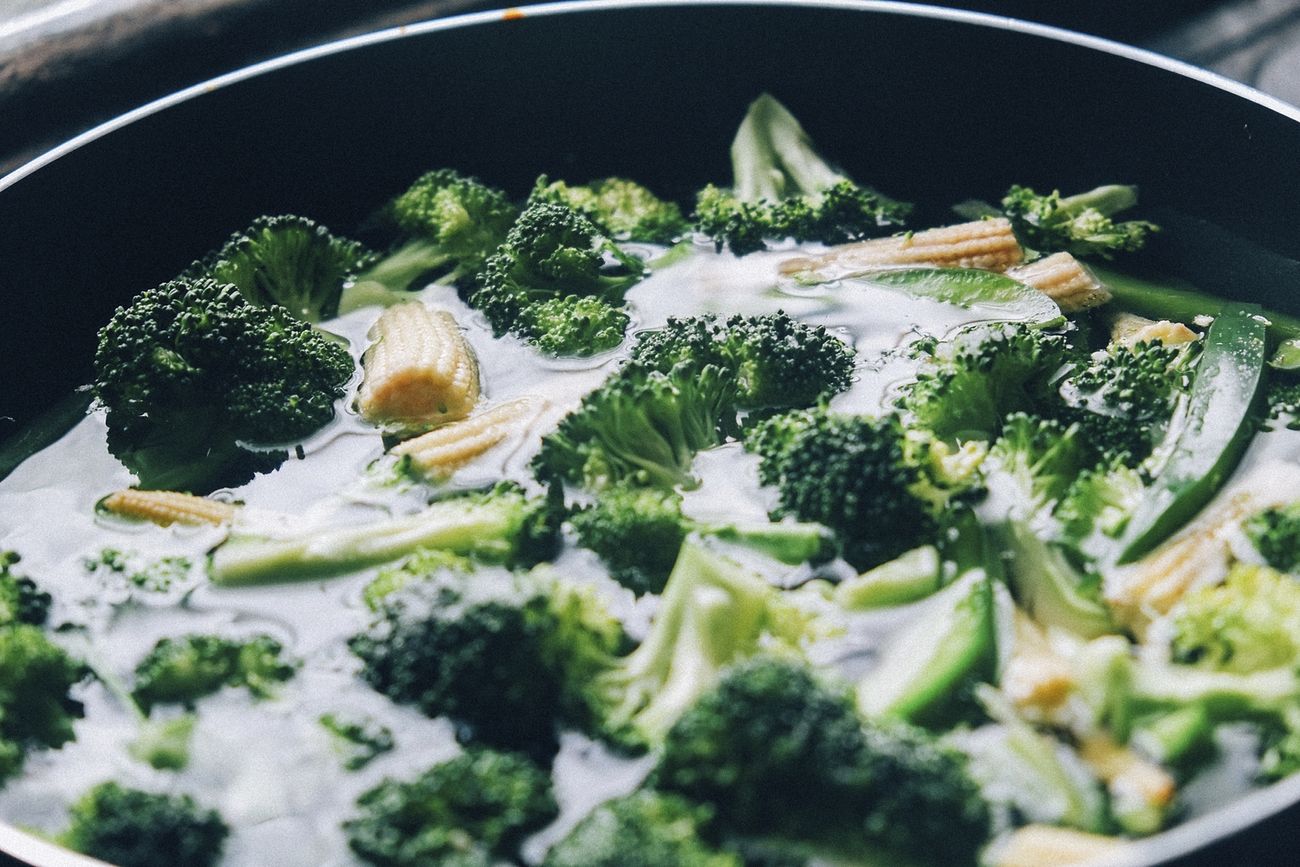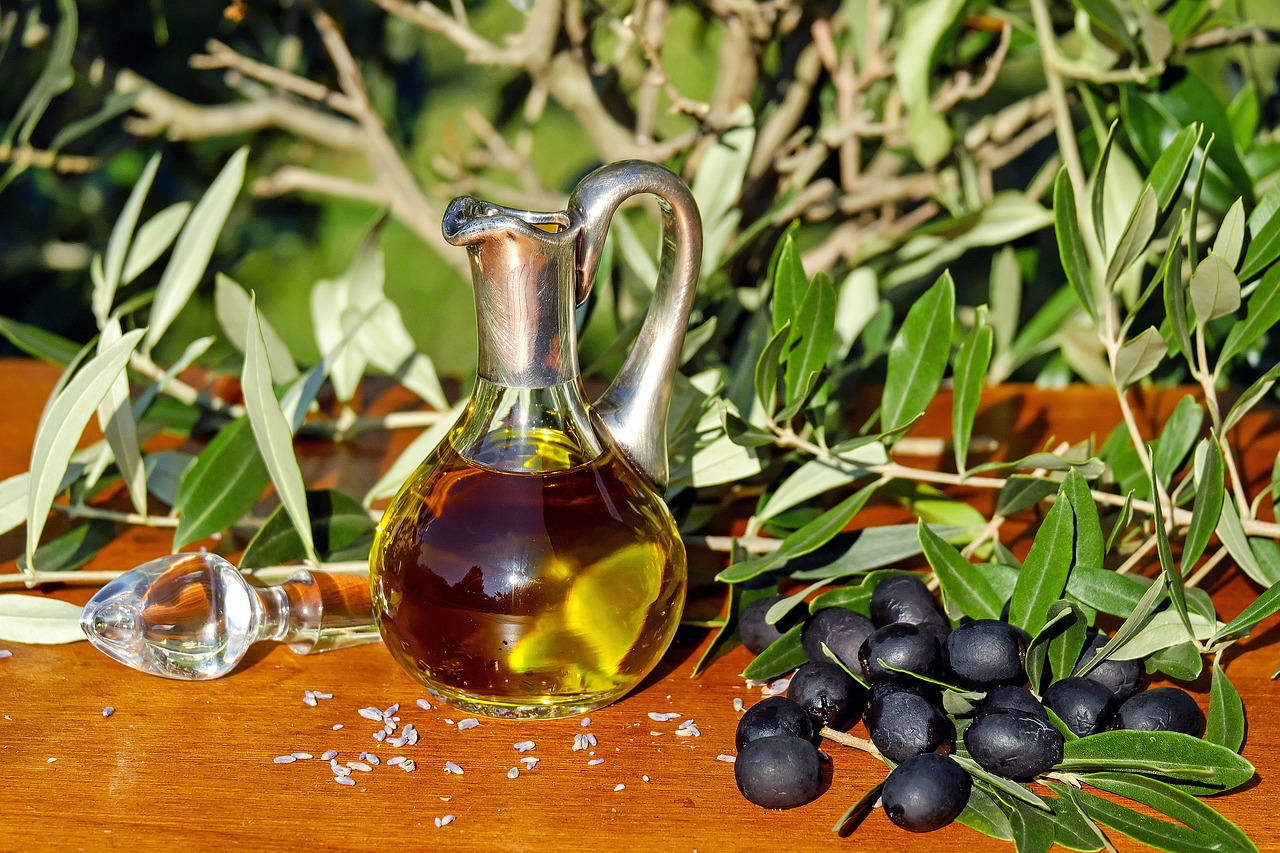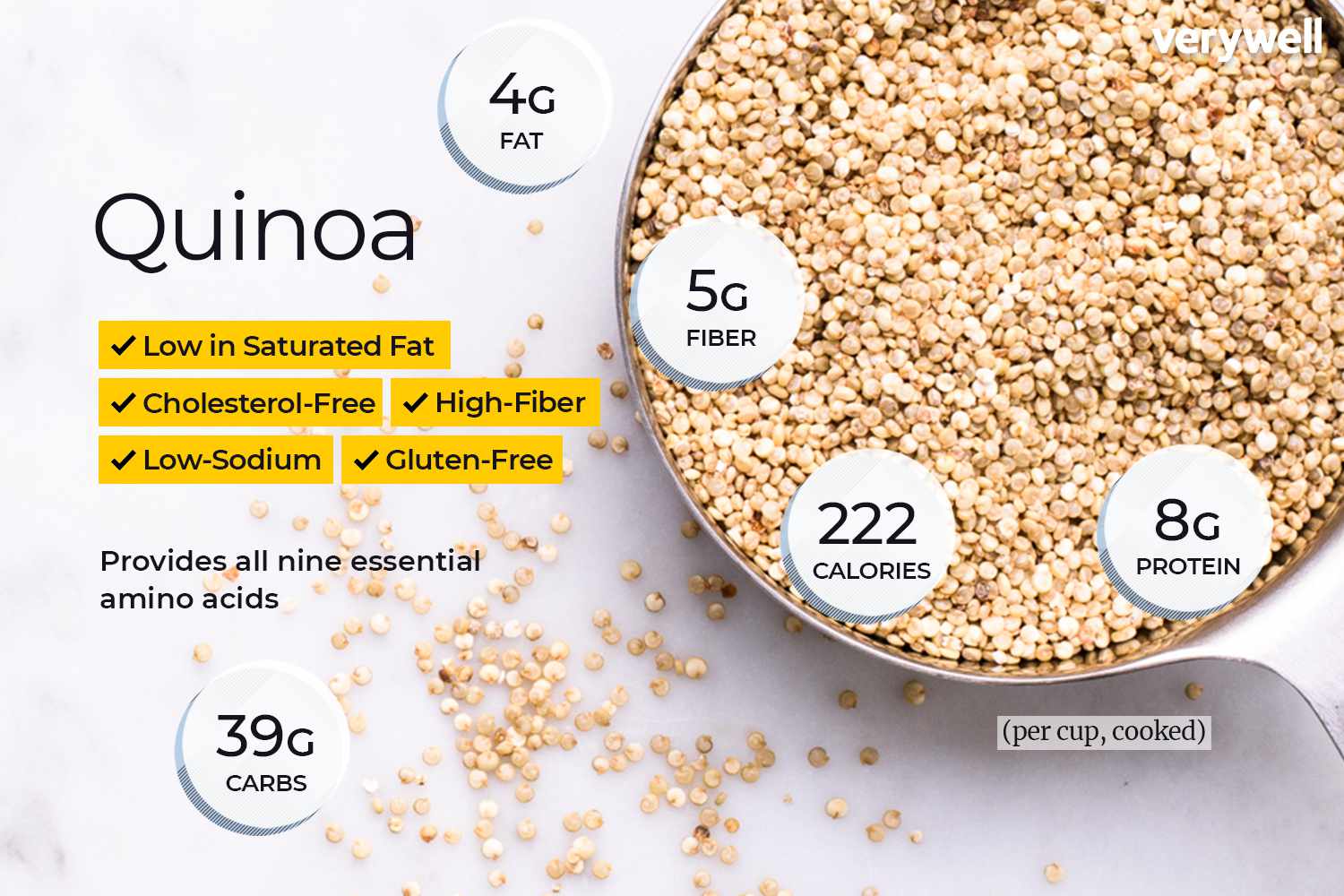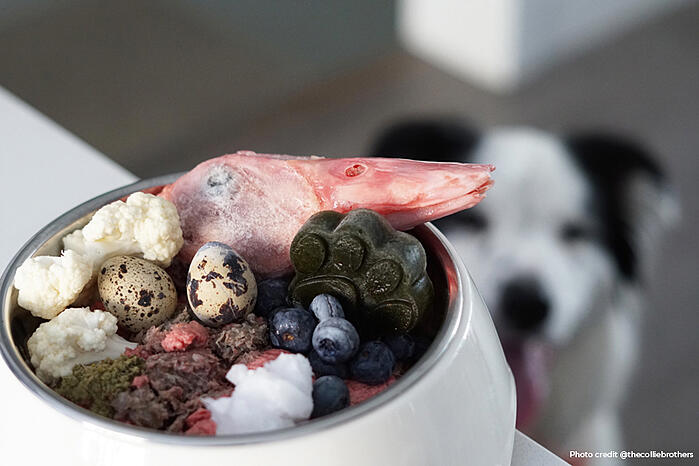Broccoli is packed with essential nutrients, such as a variety of vitamins and minerals. It also contains flavonoids, plant compounds that aid in disease prevention.
Cooking broccoli can deplete some of its essential nutrients. Fortunately, there are certain cooking methods that preserve the most nutrition.
Which Has More Nutrition Cooked Or Raw Broccoli?
Cooked and raw broccoli have different nutritional profiles, but both offer a range of important nutrients. In some cases, cooking broccoli can increase the availability of certain nutrients.
Raw broccoli is a good vitamin C, folate, and fiber source. It is also rich in antioxidants, which can help protect cells from damage. However, some studies suggest that consuming large amounts of raw cruciferous vegetables like broccoli may interfere with thyroid function in some people.
Cooking broccoli can increase the availability of certain nutrients, including carotenoids, which are important for eye health, and sulforaphane, a compound with anti-cancer properties. Cooking can also make broccoli easier to digest, which may benefit individuals with digestive issues.
However, some cooking methods can reduce the nutrient content of broccoli. Boiling broccoli can cause some water-soluble vitamins to leach out into the cooking water, while overcooking can destroy heat-sensitive nutrients like vitamin C.
| Nutrient (per 100 grams) | Raw Broccoli | Cooked Broccoli |
|---|---|---|
| Calories | 34 | 34 |
| Protein | 2.8 g | 3.3 g |
| Carbohydrates | 6.6 g | 6.6 g |
| Fiber | 2.6 g | 2.4 g |
| Fat | 0.4 g | 0.4 g |
| Vitamin C | 89.2 mg | 81.2 mg |
| Vitamin K | 101.6 mcg | 141.4 mcg |
| Folate | 63 mcg | 42 mcg |
| Beta-carotene | 361 mcg | 228 mcg |
| Lutein and zeaxanthin | 2,400 mcg | 1,900 mcg |
| Sulforaphane | Lower levels | Higher levels |
Note that these values are approximate and may vary depending on factors such as the variety of broccoli and the specific cooking method used. Overall, both raw and cooked broccoli can provide a range of important nutrients, and incorporating both forms into the diet can be beneficial for optimal nutrition.
In summary, both raw and cooked broccoli can be nutritious, and the optimal preparation method may depend on individual preferences and dietary needs. Steaming, sautéing, or roasting broccoli lightly can help preserve its nutrient content while making it more digestible.
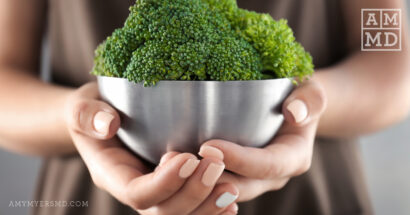
Sulforaphane
Sulforaphane is an essential cancer-fighting and anti-inflammatory nutrient found in cruciferous vegetables like broccoli and cauliflower. You can also get it through supplements, but your body needs to obtain these essential nutrients through food sources for optimal benefits.
Sulforaphane can be found in cooked and raw broccoli and other cruciferous veggies. Cooking deactivates an enzyme called myrosinase, which converts glucoraphanin into sulforaphane, so for maximum benefit from this nutrient it’s best to consume these veggies raw.
One of the best ways to boost your intake of sulforaphane is by eating broccoli sprouts, which are young broccoli plants allowed to mature. Broccoli sprouts contain 10-100 times more glucoraphanin than their mature vegetable counterpart, making them one of Earth’s richest sources of this essential nutrient.
Sprouts are low in calories, so you can eat a lot without adding unnecessary extra weight to your diet. However, it’s important to be aware that sprouts may contain bacteria like salmonella, listeria, and staph. To minimize your exposure to these germs, only consume fresh sprouts harvested within three days after sprouting and avoid any that have been frozen.
If you prefer cooked broccoli, adding mustard seeds for flavor and incorporating myrosinase into salads or soups are still beneficial. Remember that myrosinase is sensitive to heat so if you cook broccoli without letting it cool first, any sulforaphane benefits will be lost.
Aim to consume at least one to two servings of raw broccoli or another cruciferous veggie per day for optimal benefits. However, if you can’t stomach raw veggies, there are other ways to reap its sulforaphane benefits, including taking a supplement with myrosinase from broccoli powder.
Increase your intake of sulforaphane by cultivating your own broccoli sprouts at home. Sprouting broccoli is both easy and cost-effective, making it an ideal way to incorporate this cancer-fighting, anti-inflammatory nutrient into your meals.
Lycopene
Lycopene is an essential antioxidant found in red fruits and vegetables such as tomatoes, watermelon, and papaya. This powerful compound shields your cells from free radical damage caused by free radicals.
Additionally, exercising can benefit your heart health and help to regulate blood pressure levels. Lowering cholesterol has been linked to an increased risk of heart disease and stroke.
Lycopene can be consumed through fresh fruits and vegetables or taken as supplements. You may also drink tomato juice or use tomato sauce to increase your lycopene intake.
Tomatoes are packed with vitamin C and lycopene. Not only that, but they’re also an excellent source of fiber, potassium, folate – not to mention antioxidants which may lower your blood pressure and prevent cancer.
In addition to lycopene, tomatoes are an excellent source of calcium, iron and magnesium. To ensure you receive adequate amounts of these essential nutrients in a balanced way, consuming them in moderation is important.
Recent research published in the Journal of Agricultural and Food Chemistry has demonstrated that heating tomatoes to boiling or steaming increases their nutritional content by increasing total antioxidant activity. This is likely due to the release of carotenoids such as lutein and phytoene.
Researchers discovered that broccoli contains a helpful enzyme and glucosinolates which together work to increase lycopene’s bioavailability and improve its cis/trans isomerization ratio. Boiling or steaming the broccoli can destroy this enzyme, but light cooking such as steaming preserves both substances.
Good news for broccoli lovers! This vegetable boasts numerous health advantages, including improved heart health, reduced inflammation in blood vessels and a decreased risk of prostate cancer.
In a laboratory study, researchers discovered that both raw and cooked broccoli powders could inhibit Dunning R3327-H prostate cancer tumor growth in rats. Furthermore, both groups of rats (lycopene-fed or castrated) experienced increased apoptosis within these tumors.
Vitamin C
Vitamin C is essential for maintaining good health by repairing damaged blood vessels, bones, skin, teeth and tissues. It also plays a significant role in supporting immunity and having a robust immune system.
Broccoli is an excellent source of vitamin C, offering up to 90% of the recommended daily allowance in just 1 cup serving (90 grams). Furthermore, it supplies significant amounts of vitamin K which helps prevent blood clots and keeps muscles and nerves functioning normally.
Broccoli can easily be included in your diet through soups, casseroles and stir-fry as a main ingredient. Or you can enjoy it raw on salads and veggie platters; or dip it in various dipping sauces and dressings to enhance its flavor.
The nutrients found in broccoli may help protect your heart by lowering bad cholesterol and raising good cholesterol levels. Sulforaphane, an antioxidant, also reduces blood pressure and enhances kidney function. Furthermore, lutein and glucoraphanin may protect against strokes by preventing plaque buildup in arteries.
Eating broccoli can protect your eyes by preventing macular degeneration and improving night vision. This is due to its high vitamin C content, which helps slow deterioration of retinas and other eye tissue.
According to the Linus Pauling Institute, vitamin C helps your body produce collagen – a structural protein that holds cells and tissues together. Without adequate amounts of this vital nutrient, blood vessels, muscles, and bones may not remain strong.
Vitamin B6 also boosts your immune system to fight illnesses and colds by stimulating production of white blood cells that fight germs in your body. This can result in faster recovery times with fewer symptoms.
According to The American Journal of Clinical Nutrition, antioxidants found in broccoli, such as vitamin C and sulforaphane, may promote healthy skin by diminishing wrinkles, blemishes and sun damage on your face. They may also prevent free radical formation that could accelerate aging processes by damaging collagen in the skin.
Broccoli has powerful digestive properties that may help soothe bloating and gas, especially for those suffering from Irritable Bowel Syndrome. Plus, this cruciferous vegetable is packed with fiber which makes it easier for the stomach to digest and absorb.
Iron
If you want to incorporate more iron-rich foods into your diet, broccoli is an excellent choice. This nutrient-rich vegetable provides a great source of this essential mineral which plays an essential role in producing red blood cells.
Cooking broccoli to maximize its nutrition is key. Boiled or stir-fried varieties lose much of its water-soluble vitamins and minerals, while steaming, roasting, or microwaving maintain these vital compounds.
Boiling also destroys glucosinolate compounds that act as antioxidants and help reduce heart disease risk. Furthermore, it inhibits enzymes responsible for converting inactive glucosinolates into active forms.
Steaming or stir-frying tends to preserve essential nutrients, making it a more advantageous option than boiling, which only retains about 15-25% of vitamin C, 5-15% of most B vitamins, and 15-35% folate.
Additionally, cooking broccoli this way conserves more iron content than boiling or microwave cooking.
Another advantage of eating broccoli raw is its vitamin C content, which aids in the body’s absorption of non-heme iron. According to the Office of Dietary Supplements, women need 75 milligrams per day while men require 90 milligrams daily.
Broccoli is an excellent source of sulforaphane, which has been proven to reduce inflammation and boost immune function. Plus, it’s packed full of vitamins A and K.
Finally, this fruit contains potassium which helps keep your blood pressure under control and is an important nutrient for controlling cholesterol levels.
Manganese is also abundant, an essential trace mineral for healthy bones and brain development in children.
Furthermore, it provides a healthy source of calcium, potassium and fiber. Furthermore, it supplies folate, iron and magnesium.
Furthermore, tempeh is a great option for vegetarians and vegans who cannot consume meat due to allergies or other dietary restrictions. Plus, it’s low in calories with just 31 calories in 1 cup!
